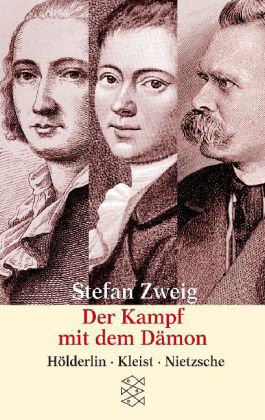A great man is pushed and hustled and
martyrized until he withdraws into solitude.
Nietzsche lived in many different towns; he travelled into countless realms of the mind; frequently he endeavoured to escape from solitude by crossing a frontier into a foreign land; but always his journeyings brought him back to solitude, heartsore, weary, disillusioned.
His solitude had become complete isolation, the final, the seventh, solitude, wherein one is not merely alone but also forsaken. A void surrounded him, an awe-inspiring silence; no hermit or anchorite in the desert was ever more abandoned. They, at least, still had their God whose shade dwelt in their huts. But he, “the murderer of God,” had neither God nor man to companion him. To the extent that he drew nearer to himself, he receded from the world; and, as his voyages extended, “the desert widened” around him.
Generally the works conceived and written in loneliness gain more and more ascendancy upon the minds of men; by a magnetic force they attract increasing numbers of admirers into the invisible circle of their influence. But Nietzsche’s books alienated even his friends. In Germany no publisher would any longer accept his manuscripts. During his twenty years of production, his manuscripts accumulated in a cellar and came to weigh many hundredweight. He had to draw upon his own slender resources in order to get his books printed. Not only did nobody buy the few volumes that were issued, but he found no readers when he gave them away. So vast was the chasm between this man’s genius and the pettiness of the time.
Practically no reviewer or critic took the slightest notice of Zarathustra, which the author described as “the greatest gift ever bestowed upon men.” One day he lamented: “After such an appeal as my Zarathustra, a cry that came from my heart, it is terrible not to hear a responsive word, to hear nothing, absolutely nothing, to be surrounded by silence, to be a thousand times more isolated than heretofore. This is a situation exceeding all others in horror; even the strongest might die under the strain… And I am far from being the strongest. Sometimes it seems to me as though I were indeed wounded unto death.” This gnawed at his vitals, undermining his proper pride, inflaming his self-assertive impulse, consuming his soul. Lack of recognition was the shaft which poisoned his isolation, and raised his temper to fever-heat.
“Prolonged silence has exasperated my pride.” At all costs he wanted response, sending letter upon letter, telegram upon telegram. Blindly and wildly he flung his missiles far and wide, never looking to see if they hit the mark. Since he had slain the gods, he set himself up as a divinity. “Must we not become gods if we are to be worthy of such deeds?” Having overthrown all the altars, he built an altar for himself in order to praise himself, seeing that no one else would acknowledge him. He chanted his own dirge with enthusiasm and exultation, mingling it with songs celebrating his deeds and his victories. To begin with, a twilight covered the landscape of his mind as when black clouds stalk up from the horizon and distant thunder growls; then a strident laugh rent the sultry air, a mad, violent, and wicked laugh full of despair, heartbreaking: this was the pæan of Ecce Homo.
As the book develops, its cadences become increasingly spasmodic, the yells of laughter are more shrill amid the glacial silence; he is, as it were, outside himself. His hands are raised, his feet stamp rhythmically; he breaks into a dance, a dance over the abyss, the abyss of his own annihilation.

2 replies on “The seventh solitude”
“I am having all the anti-Semites shot” – Nietzsche, in a letter.
Yes: he wrote that right after his psychotic breakdown.